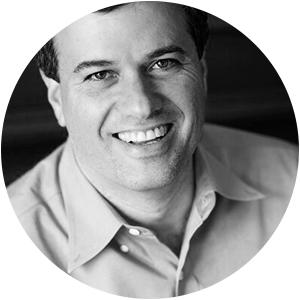Dear Sean,
I’m a recent design school grad struggling to get a job at a residential firm—mainly because I’m having trouble figuring out where to apply. Should I be applying to firms whose work I love and in an aesthetic I’d like to hone? Should I be focused on the pedigree of the firm? Or should I apply everywhere and pick the place that will teach me the most? I don’t want to get it wrong with my first “real” job. How do I start looking for the right thing, and how do I know what the right thing is for me?
New to the Market
Dear New to the Market,
There is a ton to unpack here when it comes to entering the workplace after design school. Choosing the right firm is, of course, the goal. However, equally important is setting yourself up to be successful from the start. Whether you want to own your own business one day or be a (the?) star at an already-established firm is irrelevant. Either way, your mindset must be that of an entrepreneur—someone willing to take risks, and to do what it takes to establish a level of expertise and enthusiasm that will be relied upon by employers and clients alike.
Here’s the thing: School, as fantastic as it can be, is in an inconsequential construct. You learned about design, and possibly a little about being a designer. What you did not have was someone who was able to vote with their feet if they did not enjoy your work. The very notion that you had to put forth your very best work each and every day was an internal exercise. If you had a bad day, a bad project, even a bad semester, there was always tomorrow. That mentality simply does not exist in the professional world: Professors get paid to review your work and help you improve; employers do not. You do not get the option of submitting a “draft” for review, which just costs the firm time and money. If you are not willing to bet your career on the work you do, you are wasting everyone’s time.
If you can embrace the notion that your role is not to be merely supportive but to add value wherever you go, then the answers to your questions become clear. What do you care about as a designer? Sure, aesthetic matters, but process matters more. Do you enjoy creating profound presentations, or watching a design unfold after many meetings? Working on multiple projects at once, or one massive project at a time? And why?
If you want to be a plumber, learning everything you can about electricity at an electrical firm might fulfill an intellectual curiosity but is never going to get you where you want to go. Do the work of choosing not just what you want to design but how you want to do it. Then you can seek out the firms that do just that. And as for big-name firms versus lesser-known ones? I am on the other side of the “prestige” game—instead of focusing on the name that will go on your resume, find the firm that does the work that matters to you.
Next, please show up wherever you choose to go with the idea of planned obsolescence. No one expects your first firm to be the only one you work for in your career; there is nothing wrong with coming in with an idea of what you want to learn and contribute and knowing you will be moving on later. The key is knowing what you want to learn and contribute. The power of self-determination is an awesome one if you choose to exercise it. Your employer does not owe you anything other than an opportunity—the rest is up to you.
Last, one bit of advice that I received very early in my career that has served me incredibly well. Your employers (which means everyone at the firm) are your clients. Like your firm’s clients, your clients do not need you—they want you. Your job is to make them need you each and every day.
____________
 Sean Low is the go-to business coach for interior designers. His clients have included Nate Berkus, Sawyer Berson, Vicente Wolf, Barry Dixon, Kevin Isbell and McGrath II. Low earned his law degree from the University of Pennsylvania, and as founder-president of The Business of Being Creative, he has long consulted for design businesses. In his Business Advice column for BOH, he answers designers’ most pressing questions. Have a dilemma? Send us an email—and don’t worry, we'll keep your details anonymous.
Sean Low is the go-to business coach for interior designers. His clients have included Nate Berkus, Sawyer Berson, Vicente Wolf, Barry Dixon, Kevin Isbell and McGrath II. Low earned his law degree from the University of Pennsylvania, and as founder-president of The Business of Being Creative, he has long consulted for design businesses. In his Business Advice column for BOH, he answers designers’ most pressing questions. Have a dilemma? Send us an email—and don’t worry, we'll keep your details anonymous.
Homepage photo: Shutterstock.com





























